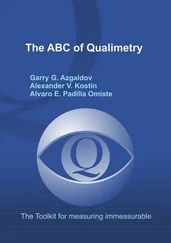“There was a young man who was the nephew of a friend of my senior uncle-my own father was late, you see. So they introduced us-they brought this young man to the house and they sat and watched as we talked. The young man was very shy and he could not talk about anything. He looked at me as if he was trying to say, Sorry, this is not my idea. When he looked at me in that way, I knew that I would be able to love him. I did not like men who never thought about how a woman was feeling. This one was thinking of me. So I said to my senior uncle that he had found a very good young man and that I would behave as a good wife should and he should not worry that they would ask for their cattle back. That is what my uncle was really worried about, Mma.
“We were married and then almost straightaway my husband went off and got a job in Gaborone as a government driver. They were looking for drivers then, as the Government had just found diamonds and they had money to spend on cars. They bought many cars with the diamond money and they needed men to drive them.
“He was very popular with the government people, and they made him a Driver Class One. This meant that he could drive big government cars and not just the cars of small officials. Now and then he drove Seretse Khama himself, Mma, and then he also sometimes drove President Masire if the President's own driver was not well. President Masire used to like to talk to him about ostriches because he was very interested in them-the President was-and my husband knew something about ostriches. He did not like ostriches very much, but he never told the President that. That would have been rude, Mma.
“While he was doing all this driving for the Government, Mma, I stayed behind in Thamaga and brought up the children. We had two sons and two daughters. One of them was the mother of Fanwell. She is late now. The other girl is married to a man on that side”-she pointed in the direction of the border-“and we do not see her very much. There is something wrong, I think, but she will not say what it is. She is not happy, Mma. One of the boys went to Maun and worked in one of those places up there. He became late, and so did his wife. That meant that their children came to me. The other one went to Francistown. He is a clerk, a very important clerk, but he does not send us any money, Mma. Not one thebe.
“While I was staying in the village with my own children, all those years ago, my husband found another woman in Gaborone. I knew about that, Mma, but I said nothing. Some of my friends said to me that I should go and find that woman and poison her, but I said no, I would not do that. I have never poisoned anybody, Mma, and I would not poison even this bad woman who was seeing my husband and taking him away from me. Have you ever poisoned anybody, Mma? I do not think you have! When I see you I do not think: That is a poisoner. I do not think that, Mma.
“And then, Mma, after many years in Gaborone, my husband became late. And that is when I found out that he had had a child by this other woman, and that child, when she was fifteen, had her own child, who is one of those smaller children you have met here. And then she had another one. They are the granddaughters of that bad woman. Their own mother just went away. She left the girls with some neighbours and told them to get in touch with me because she had heard that I was the grandmother.
“So I had to come to Gaborone and sort out all these grandchildren who had nobody to look after them. I found this place, Mma-which may be small but is very comfortable. There is enough room for all of us if we are careful how we move about and do not bump into one another too much.
“When I was in Thamaga, Mma, I earned some money as a potter. You know that they have a pottery out there? You have seen their work, maybe. I was one of the ladies who made pots, very good pots, Mma. So when I came to Gaborone I thought that I could make some pots and sell them out at that shop, Botswana-craft; you may have seen it, Mma. They are kind people there, and they are very happy to take your work if they can sell it. They take some of my pots, but not too many, and I only earn a few pula from each one. Who wants Botswana pots these days, Mma, when there are so many other things for people to buy? And it is also hard to get the right dye here in Gaborone, Mma. Out there in Thamaga we had all the things that we needed-we just had to go and find them. We had good clay. We had many fine dyes from red earth and from plants that we knew. All of that was just given to us by God, and we did not have to pay for it. Here in Gaborone, there is nothing that is free, even the things that God gives to Botswana. Somebody comes along and puts a price on them. Then they say, No, that is twenty pula that one, and that one is fifty, and so on. One day they are going to put a price on the air itself, Mma, and say, No, you cannot breathe unless you give us forty pula for the air. Do you think air is free?”
She became silent. Mma Ramotswe looked into her eyes. The whites were a strange colour, slightly ochre perhaps; burst blood vessels, perhaps, a long time ago; rust; the dust of many years. Any of these could be the explanation.
The old woman drew breath. “Fanwell is such a good boy” she said. “He works very hard in the garage, and do you know something, Mma? Every pay-day he gives me all the money he gets from Mr. J.L.B. Matekoni. Every pula. That is how we live, Mma-all of us. It is only Fanwell's money that we have, and the few pula that I make from my pots. That is what keeps us, Mma. All of us.”
Mma Ramotswe sat quite still. All of us. Until you hear the whole story, until you dig deeper, and listen, she thought, you know only a tiny part of the goodness of the human heart.
CHAPTER SEVEN. PUSO MEETS ROPS THOBEGA, BIG HERO
OF COURSE it was not good news that Mma Ramotswe received from Fanwell. But the next day was Saturday, and she put the whole matter out of her mind for the time being. The tiny white van was still working-just-and as long as she crawled along, the protests from the engine were not too loud. So she did not change her plans for that day, which, unusually for a Saturday, involved a work engagement, and a most unusual one at that.
The previous morning, Mma Ramotswe had received a telephone call from her new client, Mr. Leungo Molofololo.
“When are you going to start working on my case, Mma Ramotswe?” the businessman had asked.
“Very soon, Rra,” said Mma Ramotswe, glancing at Mma Makutsi as she spoke. The glance had a meaning for her assistant, who immediately inserted a piece of paper into her typewriter and began typing noisily.
“As you can probably hear, Rra,” she said, “the office is rather busy at the moment. But I shall start on your case as soon as I can.”
It was a genuine excuse; Mma Ramotswe had been busy, but she never expected clients to understand that. She knew how special each of us is to ourselves, and how inconceivable it is to us that somebody else's concerns should be more pressing than our own. And the richer people were, she had noticed, the more difficult it became for them to understand that there were other people with hopes and plans of their own, however small these might seem from the heights occupied by rich people. Perhaps to them we look like ants, thought Mma Ramotswe; and she imagined, for a moment, a rich person looking down and saying, That ant there, that traditionally built ant, is Mma Ramotswe. And that one scurrying around over there, that ant with big glasses, is Mma Makutsi.
Mr. Molofololo, though, proved not to be like that. He said that he understood that she was busy and that his matter would have to take its place in the queue. To which Mma Ramotswe replied, “It is a very small queue, Rra, and your case is near the top of the list now.”
Читать дальше











